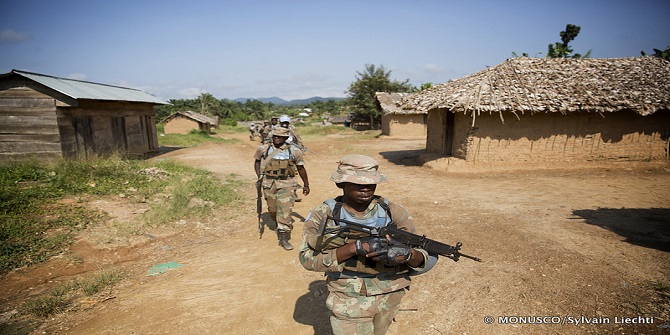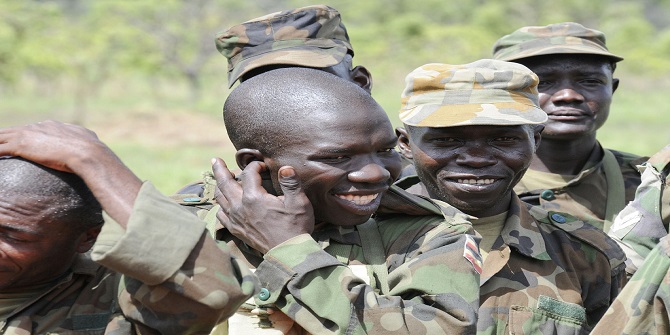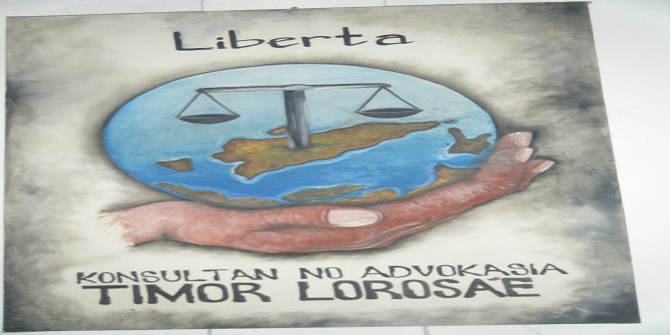In this blog, Tom Kirk and Danielle Stein explore the JSRP’s research on conflict resolution initiatives in Nepal, the Philippines and Timor-Leste. They argue that although well intentioned, programme implementers’ failures to understand how conflict resolution and the provision of justice is connected to local politics creates room for unintended consequences that can work against their aims.
In recent years, much attention has been paid to the complex patchwork of local disputes that can contribute to pervasive insecurity and, in some cases, escalate into wider conflicts in developing countries. Such considerations are particularly important in places that are emerging from conflict and struggling to return to peaceful politics. Thus, a growing body of research has focussed on conflict resolution initiatives that empower local actors to mediate disputes as and when they arise, and on access to justice in fragile and conflicted-affected states (FCAS).
Established in 2011, the JSRP began with the assumption that viewing governance, including efforts at conflict resolution and justice provision, from the perspective of the everyday experiences of people living in FCAS is key to understanding what kind of interventions or policies can help them. Nonetheless, it was suspected that the bulk of the contemporary academic and grey (including programmatic) literature largely views such practices through the prism of the state or the lens of international actors involved in ‘state-building’ as a form of peace-making. To test this hypothesis and lay foundations for the programmes’ research, the JSRP conducted systematic evidence reviews of the literature on conflict resolution and justice provision in FCAS.
The reviews revealed that much of the available research made little attempt to engage with the political dimensions of conflict mediation and justice provision. Nor did it explore in any depth how these processes are often bound up with efforts to legitimate different actors’ claims to public authority. This was surprising given that much of it conceptualises intractable conflicts and low-level violence as occurring within intricate local histories and within processes of globalisation. Moreover, it is broadly believed that insurgencies in places such as Pakistan or Nigeria, and that violent vigilantism in the Horn of Africa are linked to people’s ideas of justice or its supposed lack. This prompted the reviewers to conclude that the ‘breadth, depth, and quality of evidence-based research on which [conflict resolution and justice] interventions impact positively, or negatively, on the end-user who is negotiating her/his everyday life under hybrid governance arrangements is particularly inadequate’.
Since completing these reviews, the JSRP has sought to address this gap through research focussed on conflict resolution and justice provision in FACS, with particular attention to the Horn of Africa, South and South-East Asia. For example, Suykens and Stein’s exploration of ‘impartiality’ in a Nepalese dispute resolution programme revealed how involving politicians as mediators does not always compromise the impartiality of the process. Nonetheless, whilst often maintaining the neutrality that is socially expected of them when operating at the local level, they also regularly move cases to state-based forums, such as the police and courts, where they can bias the outcome or extort the disputing parties. This constitutes a form of enforced ‘forum shopping’, with these elites using their connections to their own personal advantage. The ability of politicians to engage in such practices strongly suggests that donors must be alive to the possibility that their programmes can simply displace or shift existing problems, with powerholders able to subvert their intentions.
Their research also underscores the need for donors to better understand the, often counter-intuitive, social incentives for participants in their programmes. For instance, it was found that in some cases the participating politicians stood to gain more social standing by appearing impartial than they did by supporting or favouring disputants in their own political parties. This point echoes the fact that the ability to resolve disputes impartially was, historically, an important constitutive element of local power in Nepal. Nonetheless, the authors argue such insights were often missing from the largely ahistorical discussions among those running the programme.
Adam and Vanden Boer’s study of the theory of change underpinning a conflict resolution programme in the Mindanao, the Southern Philippines, found that its efforts to mobilise ad-hoc coalitions of informal and formal, state based elites to resolve disputes between different communities had a similar unintended effect. Although, the programme purposefully aimed for diversity within its coalitions so as to draw upon and pool the legitimacy of these actors, the researchers argue that it overlooked the way state and non-state elites were already routinely colluding to secure rents or to use coercion to block access to state services. This meant that the programme risked replicating Mindanao’s existing exclusivist structures which unduly accord power to the executive over elected representatives or citizens. The authors attributed this blind-spot to programme designers familiar with the theoretically useful, but often practically non-existent, academic distinction between the formal and informal spheres. Indeed, much of the JSRP’s wider work focusses on how such dichotomies are often blurred or merely facades in FCAS.
Kirk’s investigation of an INGO-supported paralegal and legal aid programme in post-conflict Timor-Leste also uncovered how state and non-state powerholders can collude to subvert the designers’ intentions. In this case, families, the wider community, local leaders and judges were all revealed to be part of an effort to retain their own local social norms in the face of state-building. In the context of a para-legal and legal aid programme, this desire sometimes manifested itself in the practice of judges taking account of local reconciliation ceremonies when ruling on domestic violence cases. This enabled them to hand out suspended sentences which allowed the perpetrator to return to his community and wife. At the same time, it enabled local non-state leaders to continue to occupy positions of authority within their communities and gave them a means through which to continue to derive income from reconciliation ceremonies. Combined with a state lacking the capacity to regularly monitor the suspended sentences, Kirk’s paper suggests such practices may unintentionally leave women vulnerable to further abuse. At the same time, by overlooking them programmers may miss opportunities to build in mechanisms or checks and balances that could safeguard these women.
These findings raise a number of challenges for programme designers seeking to harness the power and legitimacy of local state and non-state actors. Most notably, it should be recognised that coalitions of state and non-state actors are the norm. Furthermore, as part of local political contests these coalitions often shape both ‘formal’ and ‘informal’ justice processes. Yet, whether such actions entrench exclusivist institution or serves wider populations should be a matter of empirical investigation. Secondly, whilst programme implementers may have the best intentions, local communities and their leaders may often seek to subvert initiatives for their own purposes or, perhaps more often, programme designers may fail to understand the local incentive structures that make their ‘solutions’ unfit for purpose. In some cases, this may simply lead to communities organising to retain their common social norms; whilst in others it can afford abusive authorities room to retain their grip on power or to extract further rents.
Nonetheless, programme implementers have a number of tools at their disposal to begin to address these challenges. For instance, the JSRP’s own research suggests that robustly debated theories of change can help them to explore how their understandings of the places they work in fare in reality. This requires a commitment to consistently revisit a programme’s underlying assumptions in light of new experiences and evidence ‘from the field’; something that can be done through regular qualitative, often ethnographic, research. Indeed, many implementers are already working such methods into their programmes’ monitoring and learning efforts through the use of tools such as the Reality Check Approach and regular political economy analyses. However, mainstreaming such efforts will likely require donors to rethink their own ways of funding and assessing implementers.
Tom Kirk is the JSRP’s Online Editor and a PhD candidate at the London School of Economics and Political Science. Danielle Stein is a Senior Associate, Research, Monitoring and Evaluation at Palladium International Development.
Note: This article gives the views of the authors, and not the position of the Justice and Security Research Programme, nor of the London School of Economics or of Palladium International Development.





